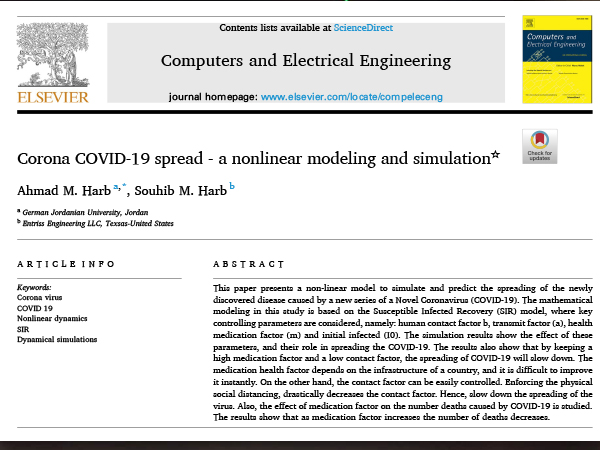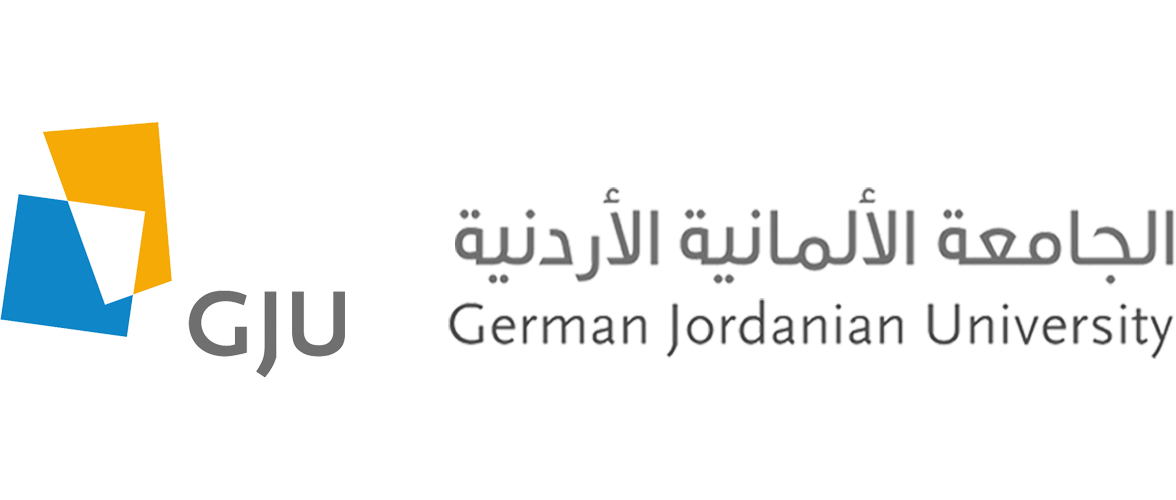Amman- 28 October 2020

Professor Ahmad Harb, a faculty member in the School of Natural Resources Engineering and Management (SNREM) – Energy Engineering Department, at the German Jordanian University (GJU) published a new research in Elsevier journal research on Corona COVID-19 spread - a nonlinear modeling and simulation.
This paper presents a non-linear model to simulate and predict the spreading of the newly discovered disease caused by a new series of a Novel Coronavirus (COVID-19). The mathematical modeling in this study is based on the Susceptible Infected Recovery (SIR) model, where key controlling parameters are considered, namely: human contact factor b, transmit factor (a), health medication factor (m) and initial infected (I0).
The simulation results show the effect of these parameters, and their role in spreading the COVID-19. The results also show that by keeping a high medication factor and a low contact factor, the spreading of COVID-19 will slow down.
The medication health factor depends on the infrastructure of a country, and it is difficult to improve it instantly. On the other hand, the contact factor can be easily controlled. Enforcing the physical social distancing drastically decreases the contact factor.
Hence, slow down the spreading of the virus. Also, the effect of medication factor on the number deaths caused by COVID-19 is studied. The results show that as medication factor increases the number of deaths decreases.
To view the full article, click here.

